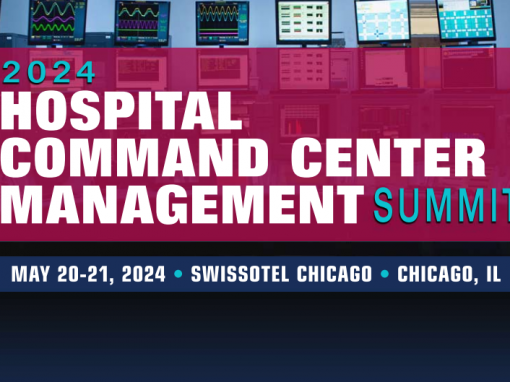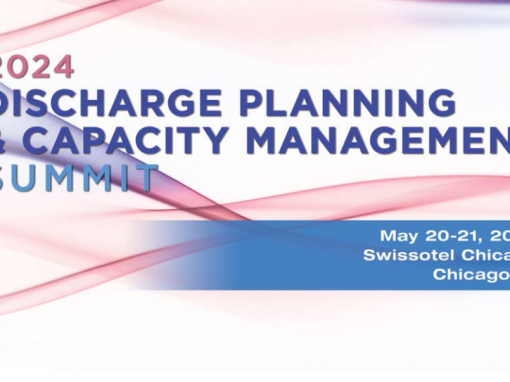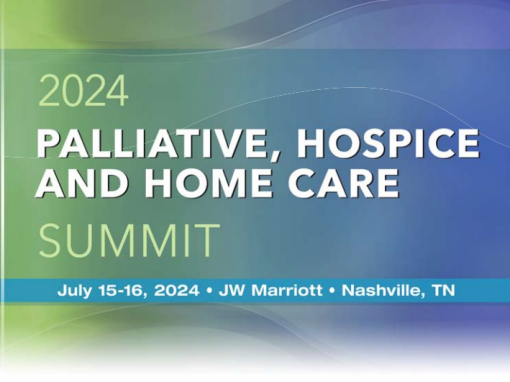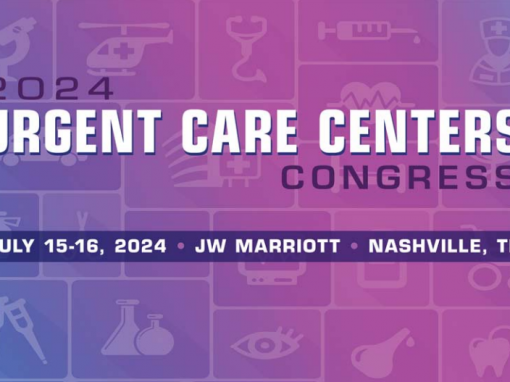2024 Nursing Leadership Summit
October 24-25, 2024 * Caesars Palace * Las Vegas, NV
2024 Nursing Leadership Summit
Day(s)
:
Hour(s)
:
Minute(s)
:
Second(s)
The leadership and direction of the clinical enterprise of any hospital or health system either excels or fails through the nursing staff and its leadership. Nurse leaders have a demanding, complex role that commands accountability in leading the nursing profession and achieving quality patient outcomes. They have consistently gone through significant challenges. Through these challenges, nursing leaders are tasked with providing quality care, reducing costs while improving patient experiences– a challenge that requires strong leaders at the helm of their organizations.
This conference brings together senior nursing executives—including Chief Nursing Officers, Chief Nursing Executives and Chief Operating Officers—and leadership from hospitals and health systems to strategize, collaborate and share best practices on patient safety, patient satisfaction, clinical transformation, readmissions, care coordination, quality and key new drivers shaping the healthcare industry.
Who Should Attend?
From Hospitals/Health Systems/Long-Term Care Facilities
Chief Nursing Officers
Chief Nursing Executive
Chief Operating Officer
Patient Care
Patient Services
Nursing Directors
Nursing Administration
Clinical Operations
Patient Experience
Patient Safety
Patient Engagement
Chief Nursing Information Officer
Telehealth Director
Operations Director
Staffing
Nurse Leaders
Nurse Manager
Medical Directors
Chief of Staff
ICU Nurse
Clinical Care
Also of Interest to Vendors/Consultants/Staffing Agencies/Recruitment
Conference Agenda
Day One - Thursday, October 24, 2024
7:15am – 8:00am
Conference Registration & Networking Breakfast
8:00am – 8:15am
Chairperson’s Opening Remarks
8:15am – 9:00am
Nurse Leadership's Impact on Reimbursement Strategies in Healthcare
Nurse leaders play a critical role in navigating complex reimbursement systems and optimizing financial sustainability for healthcare organizations. This session will explore the intersection of nurse leadership and reimbursement strategies, focusing on innovative approaches and best practices. We’ll also discuss the importance of nurse leaders in fostering a culture of fiscal responsibility, promoting transparency, and engaging staff in cost-saving initiatives.
9:00am – 9:45am
The Looming Nurse Leadership Shortage: Are You Prepared?
The combination of an aging nursing population and not enough new nurses coming in to fill those roles plays a large part in today’s nursing shortage. According to the American Nursing Association, registered nurses who are less than 30 years old represent only 10 percent of the total working nurse population. With this nursing shortage there will come a shortage of nurse leaders. The roles served by nurse leaders are critical to the health of the enterprise and ultimately, in driving positive outcomes for the patients receiving care. Given the continuing need for future nurse leaders, it is essential to develop the next wave of RNs to be well-prepared to assume leadership roles. This session will examine competencies that are vital to shaping future nurse leaders.
9:45am – 10:15am
Networking & Refreshments Break
10:15am – 11:00am
Enhancing Nurse Retention: Approaches and Strategies
Nurse retention is a critical concern for healthcare organizations, given its profound impact on patient care quality, organizational stability, and staff morale. This session will explore approaches and strategies to enhance nurse retention. We’ll identify multifaceted factors influencing nurse turnover, including workload, burnout, job satisfaction, organizational culture, and career development opportunities. We’ll also explore evidence-based approaches aimed at addressing these factors, such as implementing flexible scheduling options, fostering supportive work environments, offering professional development programs, providing mentorship and leadership opportunities, promoting work-life balance initiatives, and enhancing recognition and reward systems. We’ll also discuss the role of effective leadership, transparent communication, and data-driven decision-making in successful retention efforts. By adopting a holistic and proactive approach to nurse retention, healthcare organizations can mitigate turnover rates, enhance staff engagement, and ultimately, improve patient outcomes.
11:00am – 11:45am
Addressing Problematic Employees
In every healthcare setting, the presence of problematic employees can pose significant challenges to organizational culture, patient safety, and staff morale. Nurse leaders, entrusted with fostering a cohesive and productive work environment, play a critical role in addressing and resolving issues related to problematic employees. Nurse leaders must navigate these complexities with empathy, professionalism, and a commitment to upholding patient care standards. This session will explore strategies and ethical considerations nurse leaders employ to effectively manage and, when necessary, remove problematic employees from their teams.
11:45am – 12:30pm
Addressing the Lack of Upper Management Involvement in Nurse Leadership
Nurse leadership is integral to the delivery of high-quality patient care and the overall success of healthcare organizations. However, the lack of upper management involvement in nurse leadership can pose significant challenges, hindering effective decision-making, resource allocation, and staff support. This session will explore the implications of inadequate upper management engagement in nurse leadership roles and offers strategies for overcoming this barrier. Topics to be discussed will include:
- Strategies for enhancing upper management awareness and engagement in nurse leadership
- Fostering a culture of shared governance
- Recognizing the value of nurse leadership in driving positive outcomes
- Leveraging the full potential of nursing leadership to enhance patient care quality, staff satisfaction, and organizational performance.
12:30pm – 1:30pm
Luncheon
1:30pm – 2:15pm
Nurse Leadership in Ambulatory Care: Navigating Complexity, Promoting Excellence
In ambulatory care settings, nurse leadership plays an important role in ensuring the delivery of high-quality, patient-centered care within dynamic and often fast-paced environments. Ambulatory care encompasses a diverse array of healthcare services, including outpatient clinics, community health centers, and specialty practices, where patients seek preventive, diagnostic, and therapeutic services without the need for overnight hospitalization. Nurse leaders in ambulatory care settings are tasked with managing multifaceted responsibilities that span clinical, administrative, and operational domains. They collaborate with interdisciplinary teams to streamline workflows, optimize resource utilization, and enhance patient satisfaction. This session will explore, how through their guidance, advocacy and commitment to excellence, nurse leaders contribute significantly to the success and sustainability of ambulatory care practices, ultimately improving the health and well-being of individuals and communities they serve.
2:15pm – 3:15pm
Panel: Elevating Patient Experience
Patient experience stands as a crucial measure of care quality, directly impacting outcomes and organizational reputation. Nurse leaders, positioned at the forefront of care delivery, wield significant influence in shaping and enhancing patient experience. This session will explore strategies nurse leaders can employ to elevate patient experience through transformative leadership practices. We’ll discuss key themes such as fostering a patient-centered culture, enhancing communication and collaboration among healthcare teams, leveraging technology to streamline processes and improve accessibility, and implementing evidence-based care practices.
Top of Form
Bottom of Form
3:15pm – 3:45pm
Networking & Refreshments Break
3:45pm – 4:30pm
The Role of Nurse Leadership in Advancing Diversity, Equity and Inclusion: Strategies and Implications
Diversity, equity, and inclusion (DEI) have emerged as critical components of high-quality healthcare delivery, necessitating proactive efforts to address systemic disparities and promote a culture of belonging within nursing practice. This session will explore the pivotal role of nurse leadership in driving DEI initiatives within healthcare organizations. We’ll explore strategies for cultivating a culture of inclusion through education, training, and dialogue, fostering empathy, cultural competence, and allyship among nursing staff. We will also examine the role of nurse leaders in advocating for healthcare policies that address social determinants of health and promote health equity in marginalized communities. By embracing their role as change agents and advocates, nurse leaders can leverage their influence to dismantle barriers, foster diversity, cultivate equity, and foster an inclusive environment that enhances patient care quality and staff satisfaction.
Top of Form
Bottom of Form
4:30pm – 5:15pm
Nurses’ Role in the Opioid Epidemic
Nurses are often the first point of contact for patients seeking support for substance use disorders, which are often the result of prescription medications for pain or surgery. Their skill in navigating the healthcare system, combined with their ability to serve as compassionate patient advocates, makes nurses critical in addressing the opioid crisis. Nurses have always been their patients’ most important advocates. As the healthcare professionals who spend the most time with patients, they have a unique opportunity to help prevent opioid abuse and addiction. This session will explore what nurses can do to ease the opioid epidemic.
5:15pm
End of Day One
Day Two – Friday, October 25, 2024
7:15am – 8:00am
Networking Breakfast
8:00am – 8:15am
Navigating the Horizon: Envisioning the Future of Nurse Leadership
The landscape of healthcare is rapidly evolving, driven by technological advancements, shifting demographics, and changing patient needs. In this dynamic environment, nurse leadership plays a pivotal role in shaping the future trajectory of nursing practice and healthcare delivery. This session will explore emerging trends and challenges that will define the future of nurse leadership, underscoring the need for ongoing professional development, mentorship, and organizational support to empower nurse leaders to navigate the complexities of the future healthcare landscape effectively.
9:00am – 9:45am
How Nurse Leaders Can Make a Difference in Mental Health
Mental health – or the lack of it – is one of the most serious challenges facing the healthcare system. The scope of the problem is staggering. In the face of this, is there an opportunity for nurse leaders to make a difference? Are there areas in which nurses can have a unique impact? This session will identify areas in which there is an opportunity for nurses to provide leadership: nursing practice, continuity of care, technology and innovation, stigma and patient partnerships. Gain insights and perspectives on why these areas are particularly important and the opportunities for nurses to make a difference in mental health.
9:45am – 10:15am
Networking & Refreshments Break
10:15am – 11:00am
The Nurse Manager Role in Recruiting Staff
The costs of high staff turnover in healthcare can be considerable. Not only are there direct financial costs of replacing staff, but other repercussions such as the loss of key skills, knowledge and experience, and the negative effect on workforce morale, just to name a few. In addition, high turnover represents a substantial burden both on human resources and nurse leaders, as they're constantly recruiting and training new staff. With today's nursing shortage as rampant as it is, these incidents are more widespread than we'd like to admit. Also, high staff turnover in healthcare, particularly in rural areas, poses significant challenges, including financial costs, loss of expertise, and diminished morale. This session will explore successful recruitment strategies as well as those tailored to rural settings.
11:00am – 11:45am
Engaging Nurses in Quality Improvement
Nurses engaged in research and quality improvement projects report higher levels of job satisfaction, wellbeing, perceived higher levels of care in their workplace, with lower levels of unscheduled time off work. Additionally, first-line nurse managers are central to quality improvement work when changing work practices into better patient outcomes. Leading quality improvement efforts requires a knowledge of quality improvement principles, methods, and tools. Learn how to use a quality improvement methodology in your daily management as well as how to coach and support nurses at the bedside to engage in improvement collaboratives. This session will provide nurse leaders with practical examples illustrating how they can embed quality improvement in their daily management of their teams which can lead to higher quality and safer care.
11:45am – 12:30pm
Nursing Leadership and Population Health
Nursing has been the most trusted profession in America. Known for their honesty and high ethical standards, nurses have worked hard to gain public trust, and they are increasingly asked to help modernize the nation’s approach to population health. This renewed urgency for public health reform comes amid a global pandemic and many other challenges still looming, like improving primary and preventive care access and managing a growing and diverse patient population with high levels of chronic illness. For decades, nurses have formed the backbone of public health initiatives. Their cumulative knowledge should be mobilized to guide new policies, improve patient engagement, and enhance the health of individuals and communities. This session will explore all this and why nurses should spearhead population health initiatives.
12:30pm
Conference Concludes
Workshop - Friday, October 25, 2024
12:45pm – 2:45pm
Workshop
Bridging the Communication Gap: Strategies for Front Line Staff Nurses and Nurse Executives
Effective communication between front line staff nurses and nurse executives is paramount for delivering quality patient care, ensuring organizational efficiency, and fostering a positive work environment. However, communication gaps often exist between these two groups, hindering collaboration and impeding the achievement of organizational goals. This session will explore strategies aimed at closing the communication gap between front line staff nurses and nurse executives. We’ll identify key barriers to effective communication, including hierarchical structures, differing priorities, and limited opportunities for interaction. We’ll also highlight the importance of organizational commitment and leadership support in facilitating successful communication initiatives. By adopting these strategies, healthcare organizations can enhance communication channels, promote mutual understanding, and ultimately, improve patient outcomes and staff satisfaction.
Featured Speakers
N/A
N/A
N/A
N/A
N/A
N/A
N/A
N/A
Venue
Caesars Palace Las Vegas
3570 Las Vegas Blvd. South
Las Vegas, NV 89158
*Mention BRI Network to get the discounted rate of $209/night
Sponsors and Exhibitors
FAQ
Are there group discounts available?
- Yes – Register a group of 3 or more at the same time and receive an additional 10% off the registration fee
Are there discounts for Non-Profit/Government Organizations?
- Yes – please call us at 800-743-8490 for special pricing
What is the cancellation policy?
- Cancellations received 4 weeks prior to the event will receive a refund minus the administration fee of $225. Cancellation received less than 4 weeks prior to the event will receive a credit to a future event valid for one year.
Can the registration be transferred to a colleague?
- Yes – please email us in writing at info@brinetwork.com with the colleague’s name and title
Where can I find information on the venue/accommodations?
- Along with your registration receipt you will receive information on how to make your hotel reservations. You can also visit individual event page for specific hotel information. The conference fee does not include the cost of accommodations.
What is the suggested dress code?
- Business casual. Meeting rooms can sometimes be cold so we recommend a sweater or light jacket















